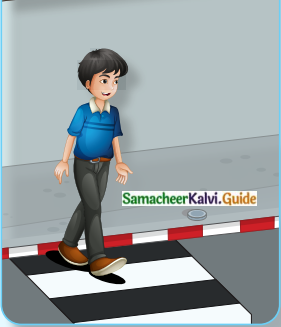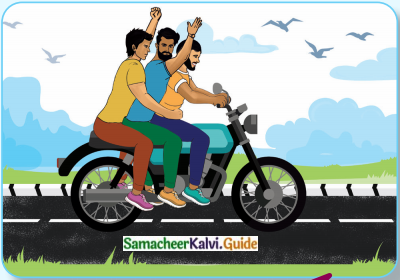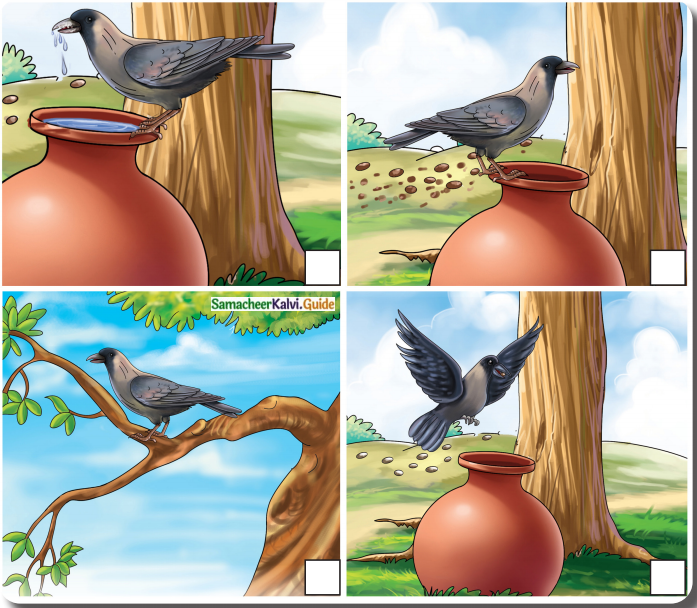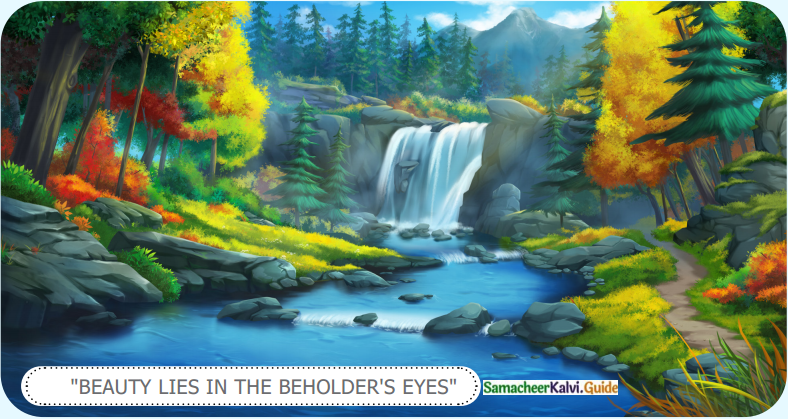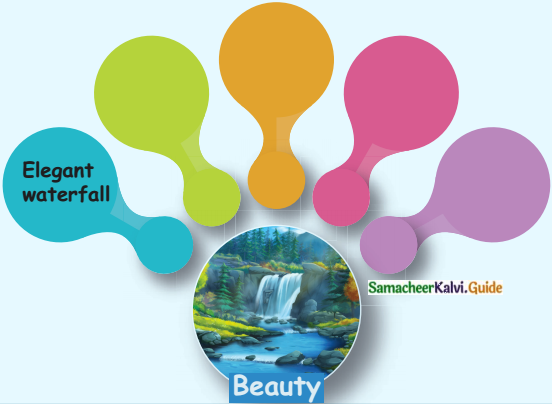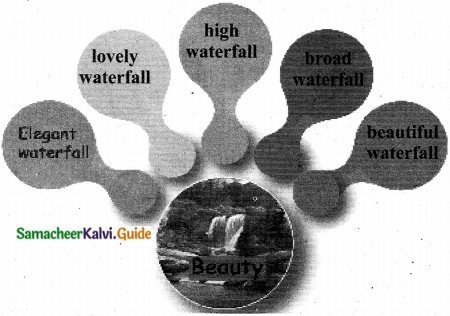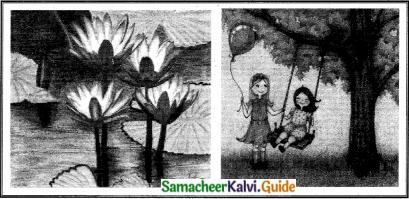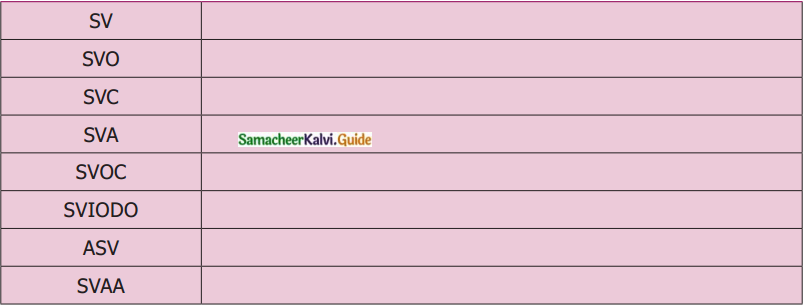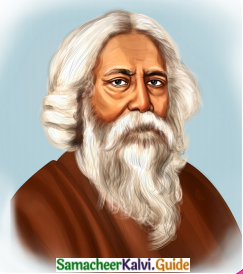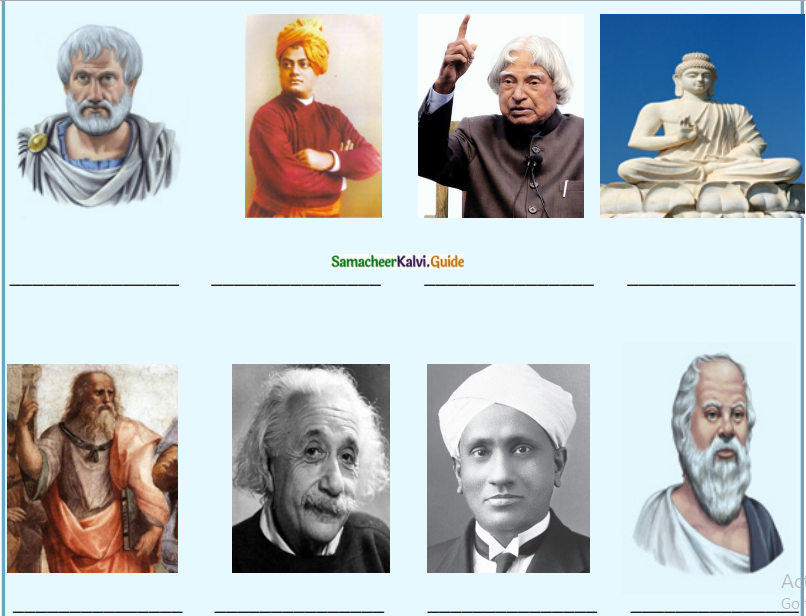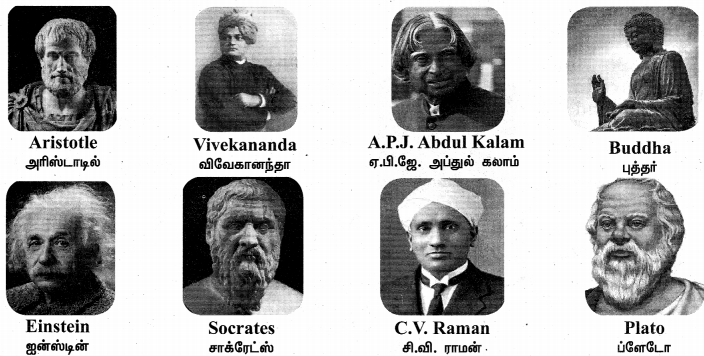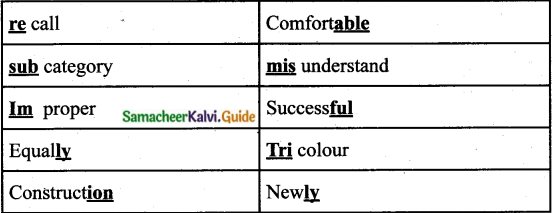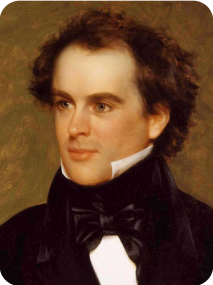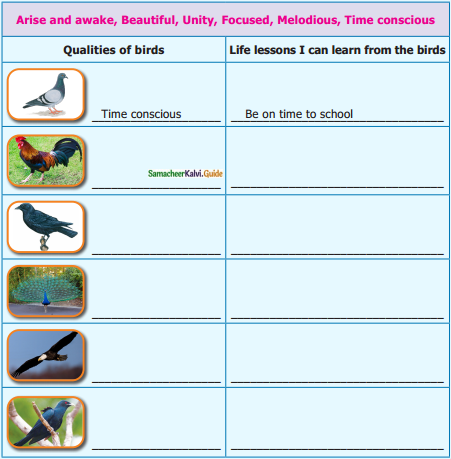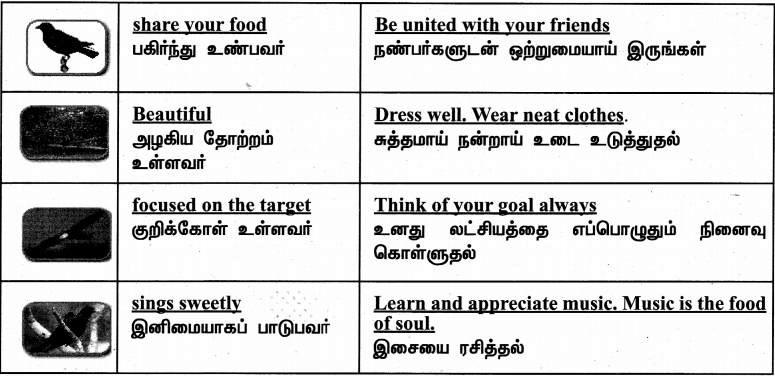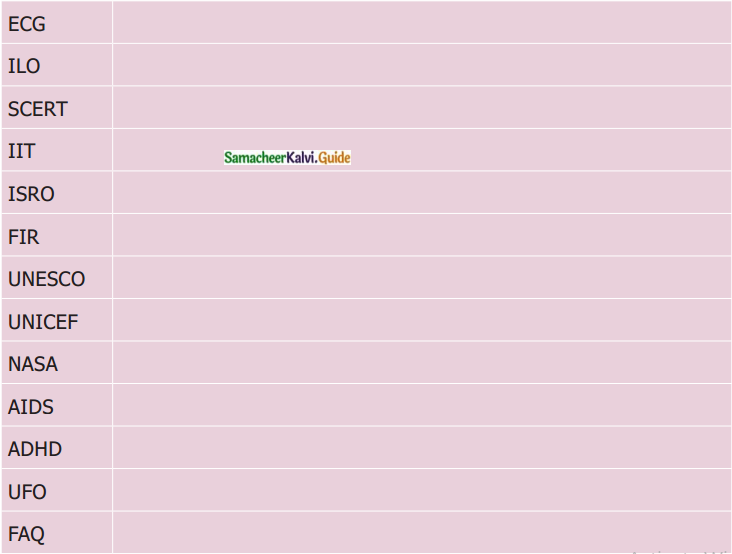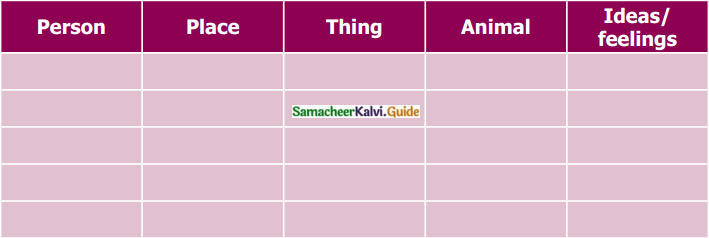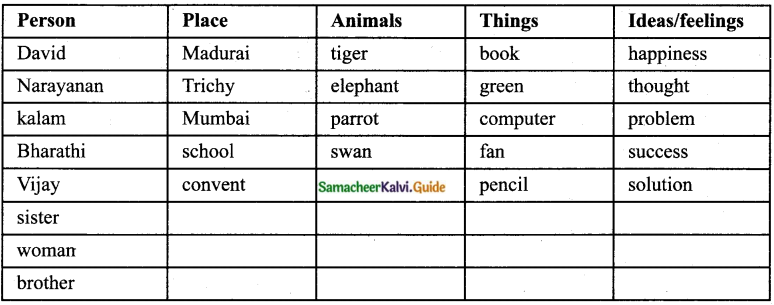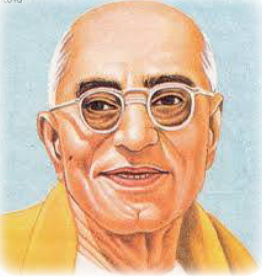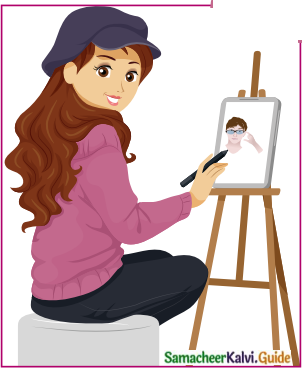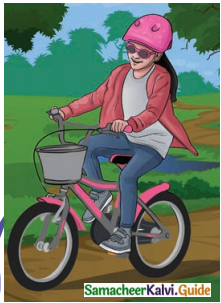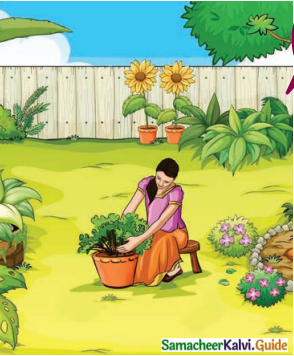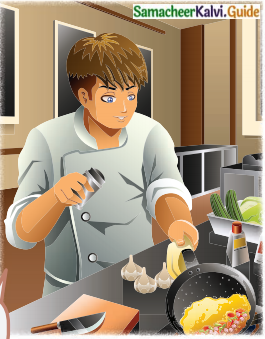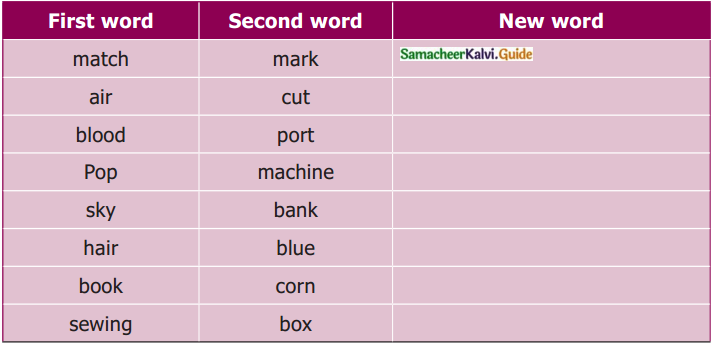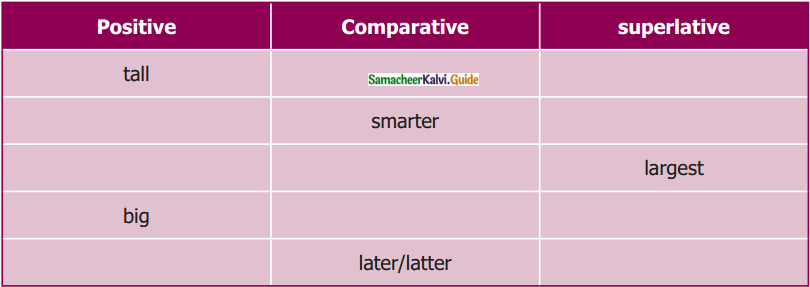Tamilnadu State Board New Syllabus Samacheer Kalvi 8th English Guide Pdf Prose Chapter 6 Friendship Text Book Back Questions and Answers, Summary, Notes.
Tamilnadu Samacheer Kalvi 8th English Solutions Prose Chapter 6 Friendship
8th English Guide Friendship Text Book Back Questions and Answers
Warm Up (Text Book Page No. 151)
1. Do you have any childhood friendship that is still strong today?
Answer:
Yes, I have my childhood friendship which is still strong today.
2. Do you make friendship with others easily?
Answer:
No, I make friendship with others only after a good understanding.
3. Share an incident that you remember proudly about your friends.
Answer:
Once I had to attend an interview and my friend Arun had come with me. When we got down from the bus, an iron rod tom my shirt. I hesitated to attend the interview with the tom shirt. Without thinking even for a single second. Arun took his shirt off and asked me to exchange the shirts. I had no other option and I did so Even today I remember proudly of Aran.
Section – I
Textual Exercise (Text Book Page No. 152)
Fill in the blanks:
1. …………………. constructions was once a leading company
Answer:
Vetri
2. He took a …………………. to run his company.
Answer:
loan
![]()
3. Vetri’s friend is ………………….
Answer:
Asif
Section – II
Textual Exercise (Text Book Page No. 153)
Say True or False.
1. Keelakudi was the native of Vetri.
Answer:
True
2. The school was a middle school.
Answer:
True
3. Vetri and Asif were good in studies.
Answer:
True
4. Vetri never visited Chennai.
Answer:
True
5. Asif was a businessman.
Answer:
True
Section – III
Textual Exercise (Text Book Page No. 153)
Read and Understand (Text Book Page No. 153)
A. Choose the correct answer.
1. Vetri went to Asif’s
a) home
b) office
c) room
Answer:
b) Office
2. Vetri came to Chennai to visit his.
a) father
b) friend
c) brother
Answer:
b) friend
3. Asif saw his friend through the
a) camera
b) window
c) glas
Answer:
a) camera
B. Choose correct synonyms for the italic word.
1. Vetri constructed a bungalow.
a) designed
b) built
c) demolished
d) destroyed
Answer:
b) built
![]()
2. The brothers started a business separately.
a) apart
b) alone
c) united
d) combined
Answer:
b) alone
3. I am living in the outskirts of the village.
a) border
b) outpost
c) center
d) region.
Answer:
a) border
4. Asif quarreled with his friend.
a) fought
b) differ
c) peace
d) fun
Answer:
a) fought
5. He stood astounded.
a) happy
b) surprised
c) shocked
d) exicted
Answer:
b) surprised
C. Choose correct Antonyms for the italic word.
1. Vetri’s wife replied angrily.
a) calm
b) annoyed
c) irritate
Answer:
a) calm
2. The vegetables look fresh.
a) rotten
b) dull
c) new
Answer:
a) rotten
3. Vetri had a strong will to start a new business.
a) desire
b) thin
c) weak
Answer:
c) weak
![]()
4. Vetri was surprised bv his friend.
a) unsurprised
b) expected
c) shocked
Answer:
a) unsurprised
5. He spoke nervously.
a) scared
b) confident
c) anxious
Answer:
a) confident
D. Answer the following questions in one or two words. (Text Book Page No. 156)
1. What was the name of Vetri’s company?
Answer:
The name of Vetri’s company was ‘Vetri Constructions’.
2. Why did he sell his properties?
Answer:
He took loans to run his company, but he could not pay the loan. So he sold all his properties in order to re- pay the loans.
3. Which was the home town of Vetri and Asif?
Answer:
The home town of Vetri and Asif was Keelakudi village.
4. When did Vetri receive a call from Asifs office?
Answer:
Two days later after reaching his home, Vetri received a call from Asif’s office.
E. Answer the following questions in 100 words.
1. How did Vetri lose his properties?
Answer:
Once Vetri was a successful businessman of Vetri constructions. It was a leading company. His company constructed many complexes, houses, and a few apartments in Coimbatore. After the death of his father, his brothers demanded him to divide the wealth because they wanted to start their business personally. Thereafter it was really difficult for him to establish his business. He took loans to run his company, but he could not pay back the loan. So, he sold his properties in order to re-pay the loans.
2. What happened when Vetri met Asif?
Answer:
Vetri boarded the train and went straight to Asif’s office. When Vetri was enquiring about Asif, he got a pat on his back. It was Asif, who came to receive Vetri, after seeing him through the CCTV camera. Vetri was speechless. He apologized to Asif saying that he never got a chance to visit Chennai. So he couldn’t meet him at all. They spoke about their school days and the fun they had. They also discussed their business. Asif took Vetri to his home for lunch. Vetri was surprised to see that everyone knows him. In the evening, Asif dropped him at the station.
![]()
3. How did Asif show his friendship?
Answer:
By understanding Vetri’s current situation Asif decided to give the project to him. Two days later, Vetri received a call from Asif’s office. They said “Our MD Mr. Asif, has assigned a project to you. He wants to meet you. Will you come to Chennai.” Through this Asif shower his friendship.
Vocabulary (Text Book Page No. 156)
Commonly Confused Words:
Complete the following sentences using appropriate confusable words.
1. The sugar had a negative on the science experiment, (effect/affect)
Answer:
effect
2. I am going to down for an hour, (lie/lay)
Answer:
lie
3. The gas prices continue to (raise/rise)
Answer:
rise
![]()
4. She always gives me good (advice/advise)
Answer:
advice
5. The war had no on oil prices, (affect/effect)
Answer:
effect
Anagram (Text Book Page No. 158)
Exercise


Antigram (Text Book Page No. 158)
Exercise

![]()
Listening (Text Book Page No. 158)
Listen carefully to the passage and answer the following questions.
Note: The listening passage is given at page no. 230
1. Whose speech is it?
Answer:
It is Rahim’s speech.
2. What did Rahul engrave?
Answer:
Rahul engraved Rahim’s help in his heart.
![]()
3. Who is lucky?
He, who finds a person who brightens our day, lends an ear, and inspires us,is
4. Who bagged the ‘all-rounder’ award?
Answer:
Rahul bagged an all-rounder award.
5. Whose birthday party is it?
Answer:
It was Rahul’s birthday party.
Speaking (Text Book Page No. 158)
Picture Description:
Describe the things in the picture using the descripture words given below.
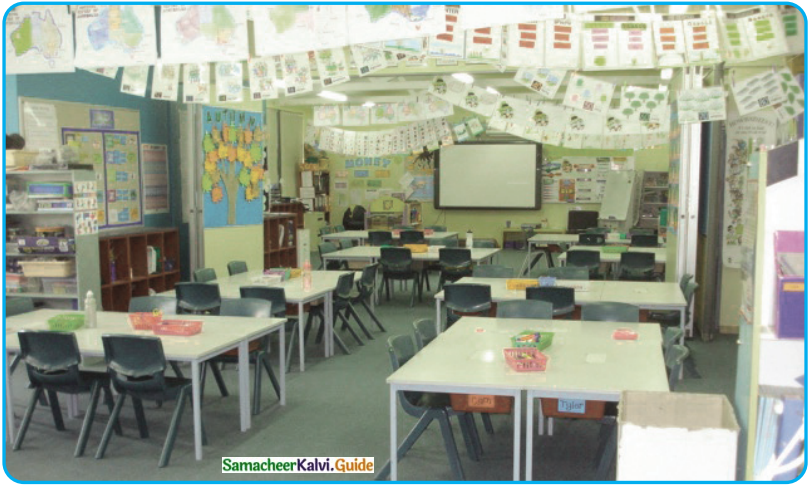
Descriptive Words
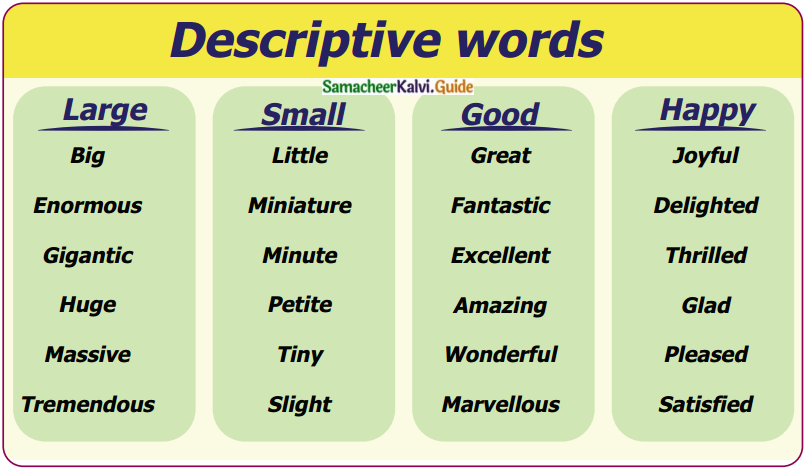
Description:
1. An applicant should not write anything in the space meant for office use.
2. Name of the saving scheme has to be mentioned.
3. Name and gender residential address have to be written in capital letters.
4. The applicant must specify whether it is self or joint account.
5. Two documents with photos and addresses must be submitted.
6. The amount deposited must be written in numerals and in number name.
7. Nomination facility must be utilized.
Writing (Text Book Page No. 160)
POST OFFICE SAVINGS BANK
ACCOUNT OPENING/PURCHASE OF CERTIFICATE APPLICATION FORM FOR INDIVIDUALS


For Applicant(s)
1. I/We request you to open:- Savings/Basic Savings/RD/TD Year//MIS/SCSS/PPF/SSA or issue NSC(8th/9,h issue) or KVP in
my/our name.
![]()
2. Full Name of applicant/Guardian (in case of minor/Lunatic A/C), in CAPITAL Letters (leave space between words) Mr./Mrs./Ms./Other First Name Middle Name Last name Gender (M/F)
| 1. | |||
| 2. | |||
| 3. |
| 1. | Miss | Radha Thangarajan | Female |
| 2. | |||
| 3. |
4. Residential Address


5. Ap plicant’s Date of Birth (dd/mm/yy) PAN Number orForm 60/61) CIF ID (if already exists)
| 1 | |||
| 2 | |||
| 3 |
| 1 | 27.09.2000 | Aelpa 2009F | |
| 2 | |||
| 3 |
6. Oper Instruction (please tick ✓ the empty box)
![]()
![]()
7. Deyail of Know Your Customer (KYC) documents submitted:-


8. Detail of First deposit:- Amount Rs.(figures) ______________ (word) _____________
Mode of Deposit ___________________
Detail of First deposit:- Amount Rs.(figures) 2,00,000 (word) two lakhs
Mode of Deposit ___________________
9. Nomination:- I/We nom into the person(s) named below under Section of the Govemment Saving Bank Act, 1873 (5 or 1873) to be the sole recipient(s) of the amount standing at the credit of the account in the event of my/our death.
I. Fill in the form given below.
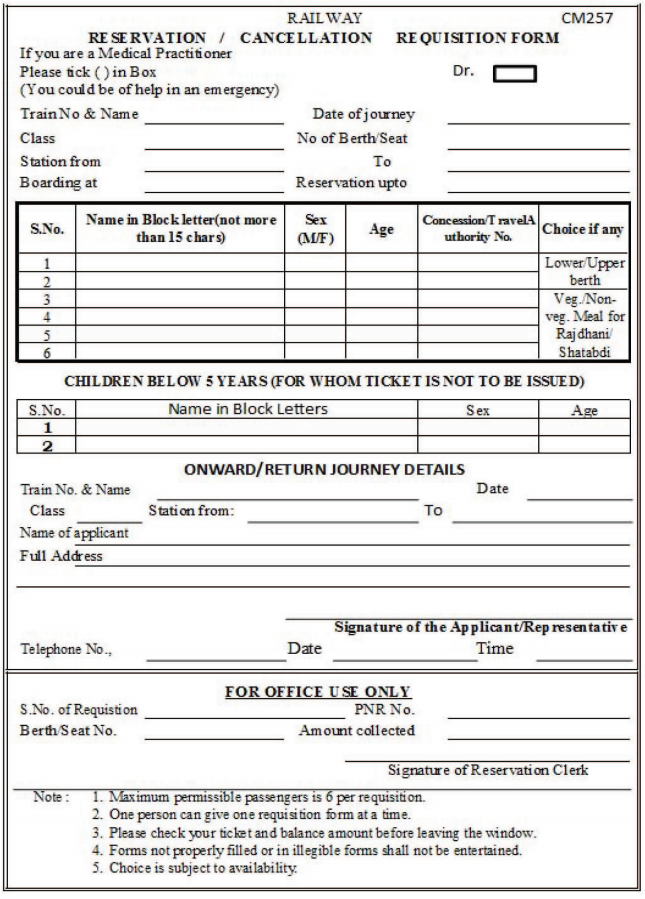
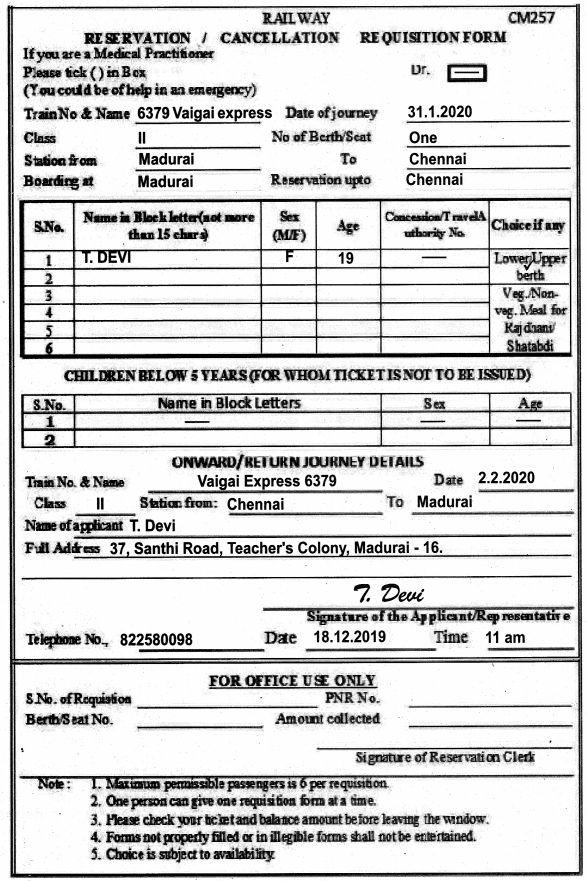
Direct and Indirect Speech:
A) Change the following into Indirect Speech: (Text Book Page No. 167)
1. “What do you want?” he said to her.
Answer:
He asked her what she wanted.
2. He said, “How’s your father?”
Answer:
He asked how my father was.
![]()
3. “Are you coming home with me?” he asked.
Answer:
He asked whether I was coming home with him.
4. The poor man exclaimed, “Will none of you help me?”
Answer:
The poor man sadly exclaimed that none of us would help him.
5. “Don’t you know the way home?” asked I.
Answer:
I asked if he knew the way home.
B) Change the following into Indirect Speech: (Text Book Page No. 168)
1. “Bring me a glass of milk,” said the swami to the villagers.
Answer:
Swami said to the villagers to bring him a glass of milk.
2. “Sit down, boys,” said the teacher.
Answer:
The teacher told the boys to sit down.
3. “Halt!” shouted the officer to his men.
Answer:
The officer shouted his men to halt.
4. “Take off your hat,” the king said to the Hatter.
Answer:
The king ordered the Hatter to take off his hat.
5. The teacher said to him, “Do not read so fast.”
Answer:
The teacher ordered him not to read so fast.
6. He said to me, “Wait until I come.”
Answer:
He told me to wait until he came.
7. “Hurry up,” he said to his servant, “do not waste time.”
Answer:
He ordered his servant to hurry up and not to waste time. .
8. “Runaway, children,” said their mother.
Answer:
The mother told her children to run away.
9. He said, “Daughter, take my golden jug, and fetch me some water from the Well.”
Answer:
He told his daughter to take his golden jug and fetch him some water from the well.
10. “Go down to the bazaar. Bring me some oil and a lump of ice.” ordered his master.
Answer:
The master ordered to go down to the bazaar and bring him some oil and a lump of ice.
D) What were the actual words used in each instance below? The sentences containing the actual words are jumpled in the box. Write them out in the same order as the actual words. (Text Book Page No. 168)
1. Punitha asked Pushpa what she was reading.
Answer:
“What are you reading, Pushpa”? asked Punitha.
2. Pushpa told her that he was reading Robinson Crusoe.
Answer:
“I am reading Robinson Crusoe”, Pushpa told her.
3. Punitha asked her what it was all about.
Answer:
“What is it all about”? Punitha asked.
![]()
4. Pushpa said it was about a man wrecked on an island.
Answer:
“It is about a man wrecked on an island,” said Pushpa.
5. Punitha then asked her friend who gave her the book.
Answer:
“Who gave you the book, Pushpa?” Punitha then asked.
6. Pushpa answered that her uncle gave it to her at Christmas.
Answer:
“Uncle gave it to me at Christmas,” answered Pushpa.
7. Finally Punitha inquired if she could borrow it.
Answer:
“May I borrow it?” inquired Punitha.
8. Pushpa replied that she would certainly lend it to her.
Answer:
“Of course I will lend it to you,” replied Pushpa.
- “May I borrow it?” inquired Punitha.
- “What are you reading, Pushpa?” asked Punitha.
- “It is about a man wrecked on an island,” Pushpa said.
- “Of course I will lend it to you,” replied Pushpa.
- “Uncle gave it to me at Christmas,” answered Pushpa.
- “What is it all about?” Punitha asked.
- “I am reading Robinson Crusoe, Pushpa told her.
- “Who gave you the book, Pushpa?” Punitha then asked.
E) Change the following into Direct Speech:-
1. Nevin asked his father when the next letter would come.
Answer:
Nevin said to his father,” When will the next letter come?”
2. I wrote that I would visit him next day.
Answer:
I write, ” I will visit you tomorrow.”
3. I told them to be quiet.
Answer:
I said to them, “Be quiet.”
4. Lakshan asked me if I had anything to say.
Answer:
Lakshan said to me, “Do you have anything to say?”
![]()
5. An old mouse asked who would bell the cat.
Answer:
An old mouse said, ” Who will bell the cat?”
6. Mervin said that he wanted to be a soldier.
Answer:
Mervin said, “I want to be a soldier.”
7. Ebin asked me what I wanted.
Answer:
Ebin said to me, “What do you want?”
8. Bhagya said that she had seen that picture.
Answer:
Bhagya said, “I have seen that picture.”
9. The stranger asked Nasrin where she lived.
Answer:
The stranger said, “Where do you live?”
10. I asked Mary if she would lend me a pencil.
Answer:
I said to Mary, “Will you lend me a pencil?”
F) Sherlyn receives a postcard from her friend Pushpa who is holidaying in Sri Lanka. She calls her friend Galen and tells him what Pushpa has written. Help her by filling in the blanks, using reported speech. (Text Book Page No. 169)
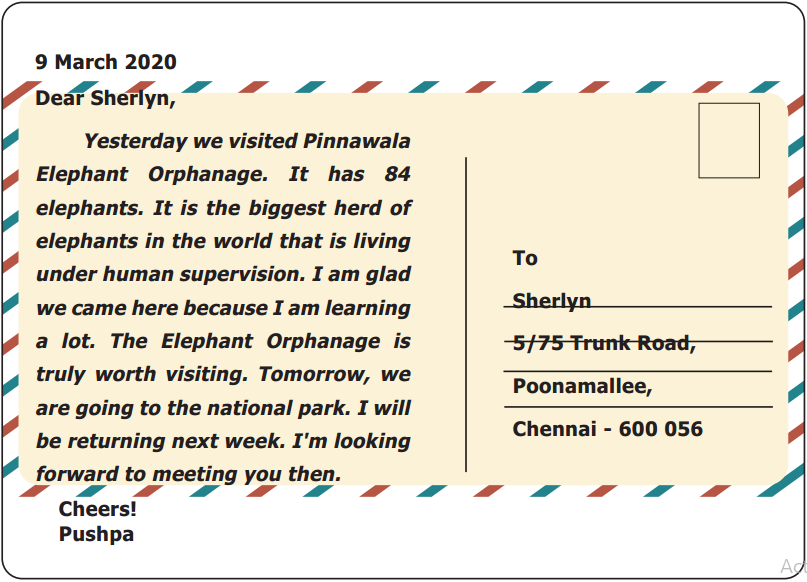
Hello, Galen Today I received a postcard from Pushpa. Remember I had told you that She has gone to Sri Lanka on a holiday? Well, she has written from Colombo. She has written that she had visited Elephant Orphanage. It had 84 elephants. She said that it is the biggest herd of elephants in the world that is living under human supervision. She also added that she was glad that they had come there because she was learning a lot. The Elephant Orphanage was truly worth visiting. She said that the next day. they were going to the national park. She would be returning next week and added that she was looking forward to meeting me. then.
Friendship Summary in English
Vetri a businessman fell in debt. He lost his money. He needed money to start a new company. His wife advised him to ask his school friend Asif a successful business man at Chennai. Vetri was reluctant. Since he had no other alternative, he went to Chennai to meet his friend Asif.
Friendship Summary in Tamil
வெற்றி, வியாபாரம் செய்வதில் கடனாளி ஆனார். தன் பணத்தை இழந்தார். புதிய தொழில் தொடங்க பணம் தேவைப்பட்டது. அவரது மனைவி, அவரது பள்ளி நண்பர் ஆசிப்பிடம் உதவி கேட்க அறிவுரை கூறினார். அதில் வெற்றிக்கு தயக்கம் இருந்தது. இருப்பினும் வேறு வழியின்றி, தன் நண்பன் ஆசிப்பை சந்திக்க சென்னை சென்றார்.
